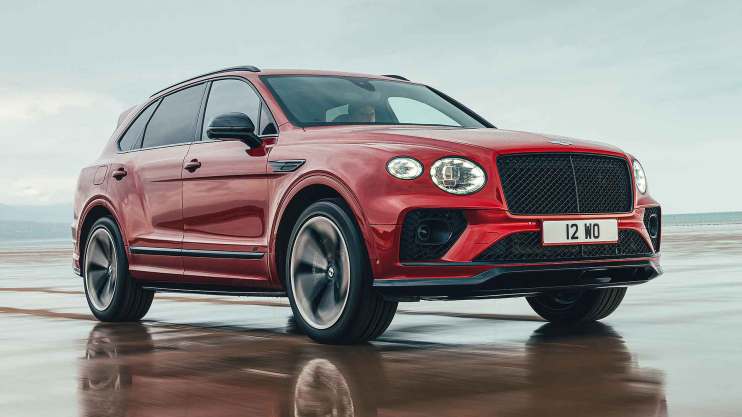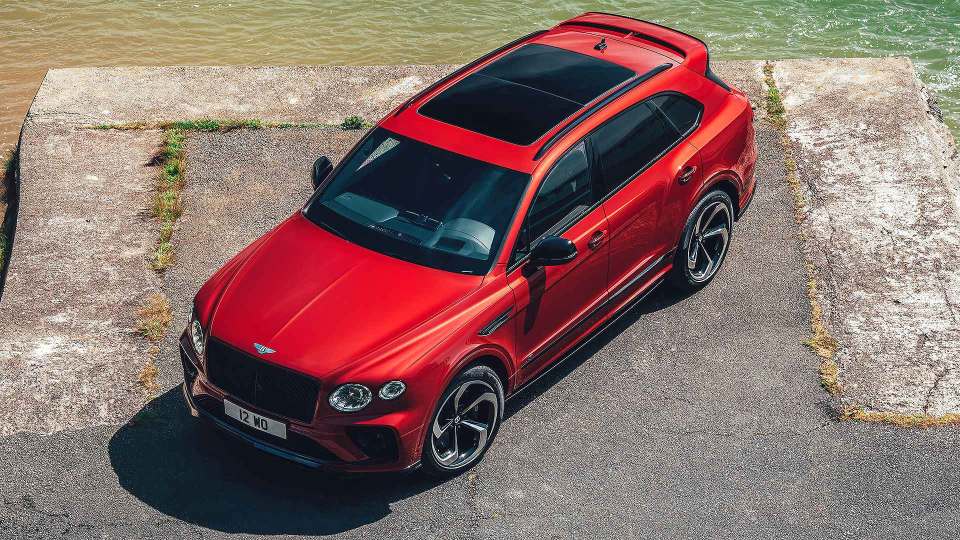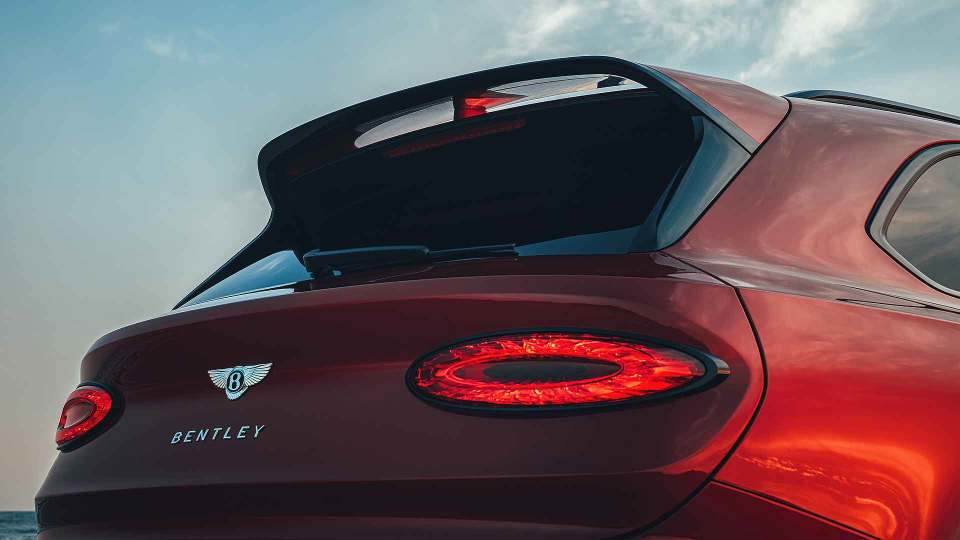Bentley Bentayga S review: the customer is always right

Bentley customers created the new Bentayga S. Perhaps inspired by the racy-looking Aston Martin DBX, they told the Crewe-based company they weren’t particularly bothered about having more power than a regular Bentayga V8. An Aston-matching 550hp was plenty.
What they did want was added sportiness, to take it to their friends who’d bought a DBX. The Bentayga S is their answer.
Doesn’t the Bentayga Speed fulfil that role, though? That W12-engined monster did indeed, until it was withdrawn from the UK market. Bentley wants to be fully electric by 2030, and you can already buy a plug-in hybrid Bentayga. That leaves no place for a thirsty 6.0-litre behemoth over here.
At 21.7mpg, the 4.0-litre twin-turbo V8 is arguably thirsty enough. But it also propels this giant 2.4-tonne SUV – which can have four, five or even seven seats – from rest to 62mph in 4.5 seconds, so it’s fast enough as well. Given its size, it certainly feels like plenty on the Warwickshire roads where I tried, and failed, to truly stretch its legs.
So solid Crewe

I did manage to discover its newfound depths of cornering ability, though. The Bentayga S is overtly sportier in feel thanks to a more focused chassis tune, which includes a dedicated Sport setting to stiffen the air suspension by 15 percent.
Bentley’s powerful active anti-roll system is standard, and clever tweaks to the torque vectoring system make it feel snappier and more like a hot hatchback through bends. Cornering isn’t something that comes naturally to heavy and high-riding SUVs, but the Bentley shows what can be done with a bit of nous.
It’s a beefy car to drive, mind. The steering is heavy and the powerful brake pedal is genuinely weighty. This isn’t some remote wafter, but a proper beast that involves you in the driving experience. The lag-free response from those twin turbos means forceful acceleration is there in an instant when you want it.
Back in black

Compared to the cushy original Bentayga that I drove across America back in 2016 (since then, Bentley has sold more than 25,000 examples of its six-figure SUV), it’s quite the transformation.
Visual assertiveness reflects this; there’s a large rear spoiler like you’d find on a Golf R, dual sports exhausts and a Blackline pack that darkens the chrome and blackens the door mirrors and bodykit. Dark-tinted front and rear lights complete the makeover.
Instead of leather, suede-like Alcantara features heavily inside. This is a brilliant material, heavily used in rally-bred icons such as the 1990s Lancia Delta Integrale. Here, it’s on the seats, automatic gearshifter and, magnificently, the steering wheel. Just like (can you see a trend here?) a sporty hot hatchback.
Bring the noise

Bentley has even given us a snarly exhaust system, with free-flow primary and secondary pipes. One is the supposedly ‘quiet’ set, to pass drive-by noise legislation, with the other dedicated to higher-volume rort in Sport mode.
This is a V8, so it inherently sounds good. With this enhanced exhaust, it sounds delicious, serving up proper NASCAR attitude with a floored accelerator. It’s what boy racers dream of when their crypto startup comes good.
I like what Bentley customers have done here. Maybe they grew up climbing the hot hatch ladder. They’re certainly experts in how to give a good car added attitude. So what if it doesn’t have more power? It’s got enough, and the extra character is easily more valuable than a hundred or so extra horses.
Open up and say ‘R’

It’s just the name that’s a bit of a let-down. ‘Bentayga S’ is a bit vanilla, and doesn’t quite underline the change in emphasis. I don’t believe the Bentley buyers who created this are quite so shy and retiring, so this sportiest Bentayga is crying out for a more evocative moniker.
It’s got the Alcantara and quad exhausts of a Golf R; surely it could borrow its name? Bentley customers, you know who to lobby.
Richard Aucock writes for Motoring Research
PRICE: £179,600
POWER: 550hp
0-62MPH: 4.5sec
TOP SPEED: 180mph
FUEL ECONOMY: 21.7mpg
CO2 EMISSIONS: 294g/km